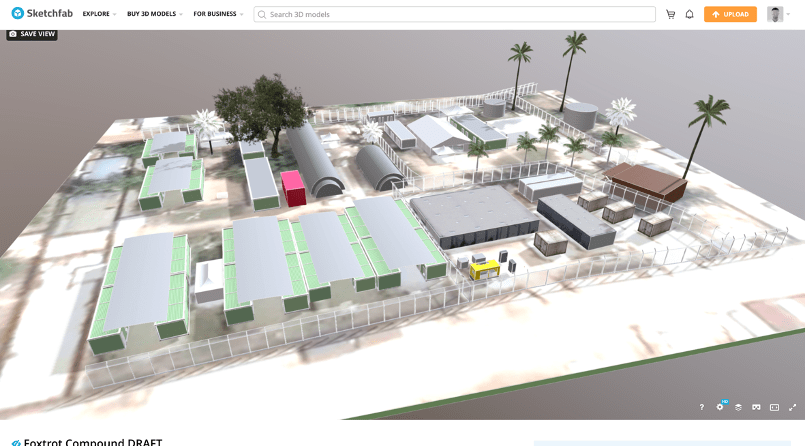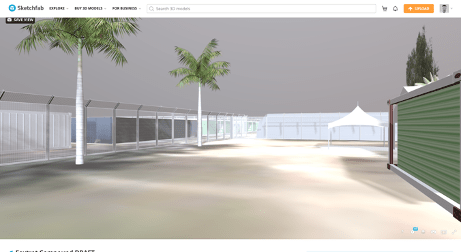Arts
Introducing the Arts e-Teaching Team
The Faculty of Arts eTeaching/eLearning unit supports Faculty of Arts teaching staff integrate technology in teaching and learning, to enhance student engagement and interactivity, and to develop innovative teaching materials. We also provide local support and administration for Canvas and other learning tools, digital media production and manage an equipment loans office for use in Faculty of Arts subject teaching (humanities, languages, social sciences). We are a small but dynamic team that was formed in 2012. The team is constantly evolving new approaches to augment blended learning, support active learning and innovative digital media production.
Using a combination of medium-quality production and DIY approaches, we’ve explored different ways to enhance learning opportunities by creating and applying immersive technologies and VR in ways relevant to the humanities, social sciences and language disciplines. In particular, there’s opportunities for interaction with learning materials through authoring learning “experiences” that enhance our Faculty’s focus on Object Based Learning (OBL).
We’ve taken a flexible approach, so that the learning experiences and learning materials have application in a range of teaching contexts:
- Face-to-Face: in-class active learning, in-class ‘incursion’, virtual field trips)
- Blended Learning: material used in-class or outside of class time, through the LMS
- Fully Online subject: virtual tours, explore places, spaces, objects.
The use of DIY approaches has been intentional. Simple drag and drop, no coding tools such as Seekbeak for building VR/360 experiences, represents something teaching staff and students can do themselves. Application includes students building interactive field trips or tours, digital storytelling presentations and alternatives to traditional essay assessment, through importing 180’ or 360 photos and adding a series of hotspots comprised or narrated voiceovers, videos, text resources. (see Seekbeak example for Online subject In the Heart of the Loire Valley).
In 2016 we filmed original interpretations of scenes of Shakespeare’s plays for use in the Shakespeare in Performance subject. The same screen from the Taming of the Shrew was filmed in three different presentation styles, including immersive 360 video, using the same text and actors. Using a classroom set of Google cardboards, students had agency to face and observe any of the actors in the scene, rather than being presented with a director’s interpretation. We began supporting the Screen Studies program with VR technology in 2017, by assisting in ‘critical viewing sessions’ during class time. The students played short games, watch 360 clips and discussed issues such as ‘immersive storytelling’ and ‘the intersection of gaming culture’ taking turn on a solitary Oculus Rift PC VR rig.
These early examples seemed like the natural starting point to begin using XR EdTech within Arts and Humanities.
While that work continued, in 2017-18, things began to grow in a noticeably different direction. Arts eTeaching began producing teaching assets for the Ancient Worlds Studies program, using various novel mashup techniques and collaborations with other tech /TEL professional staff within Learning Environments and the Library.
- Dr Monique Webber and Ben Loveridge’s ‘Virtual Visual Analysis’ of Roman statues
- Ben Kreunen’s (UoM Digitisation) super high-quality Egyptian relic photogrammetry
- Assassin’s Creed Egypt video game-world remixing method to create 360 tours
These eye-catching examples were a powerful way to garner interest and support, and the ensuing period up to 2020 we chalked up about 15 ‘VR 360 3D’ projects. These ranged from in-class demonstration, learning incursions, student-led exhibitions, Arts Engagement promotions, professional development sessions, custom 6DOF/3DOF/360 learning experiences, and collaborative research projects.
While we work with specialists across the whole University, our team comprises:
Meredith Hinze, Manager, eLearning/eTeaching (Learning Design, learning technologies, professional development, Digital Producer, project coordination)
Sam Taylor, Videographer & Editor. (High end 2D & 360 video, 3D modelling, production management)
Mitch Buzza, Educational Technologist, Digital Producer. (VR 360 3D, web tools, LMS administration)
Dan Hayward, Documentary maker & Editor (Equipment and Facilities, Technical Consulting)
The Faculty of Arts has approximately 50 subject disciplines and 300 teaching staff. This diversity means there is always a few ideas for new projects bubbling up and in various stages of development. Here are three examples showing the diversity of our output.
Who is Nature? (Version 2.0).
Learning intention: Exploring indigenous cultures, prompting critical discussion. Used in Latin American Studies subjects (undergraduate and a Masters subject). Students wrote reflective essays on the video for final assessment in semester 1, 2020.
A VR 360 & 2D Video multimedia tour of 4 cultural belief systems. Afro-Cuban, Mexican, Afrikete Festival Gold Coast, Beemarra serpenct, Pilbara WA.
Against Erasure – Manus Island (Version 1.0, 75% complete, close to publication)
Collaborative research project – Criminology, History, Geography, eTeaching.
Using satellite imagery, documentary audio/video and primary source interviews to reverse engineer the now dismantled and razed Manus Island Detention Centre as a detailed 3D model with hotspots, containing links and audio commentary.
The Library of Egyptian Stelae (Version 2.0, 75% complete, close to publication).
Learning intention: Read hieroglyphics, prompting critical discussion.
A 6DoF Unity3D based VR experience – 50 stelae in a Museum setting. Complements the ‘Tomb of Nefertari’ an exquisite high-quality 3D scanned simulation of the actual tomb in Egypt, which is now sealed off from any visitors.
Arts eTeaching Unit: arts-eTeaching@unimelb.edu.au
SoTEL Updates
- Call for Papers and Reviewers now open for the #ASCILITE2024 Conference June 21, 2024
- An Introduction to CMALT professional accreditation #ASCILITE2024 June 18, 2024
- Darren Sudlow – SoTEL2024 Trendsetter6: Strengthening the System – Networked Education June 18, 2024
- SoTEL2024 Trendsetter4 Robert Vanderburg: Enhancing Mathematical Proficiency through Digitally Individualized Pedagogy May 27, 2024
- SoTEL2024 Trendsetter Cristian Rodriguez “A Tale of Two Schools” May 20, 2024
SoTEL Network Contributors
Categories
- @MelbCSHE
- #ASCILITE
- #ASCILITEMLSIG
- #BionicLimb
- #EDUC90970
- #Heutagogy
- #Mesh360
- #PJTEL
- #SoTEL
- #SOTELNZ
- #TheNewNormal
- #THETRN
- #xrbootcamp
- ALT
- Altmetrics
- CMALTcMOOC
- COVID19
- Feedback
- Generative AI
- Immersive Reality
- Learning analytics
- Learning design
- Mobile Learning
- News
- Open Badges
- Research CFP
- Self-regulated learning
- Social VR
- SoTEL Research Groups
- SoTEL Showcase
- TELBootCamp
- TELBootCamps
- Webinar
Archives
- June 2024
- May 2024
- April 2024
- March 2024
- February 2024
- August 2023
- February 2023
- November 2022
- June 2022
- April 2022
- March 2022
- February 2022
- January 2022
- December 2021
- November 2021
- October 2021
- September 2021
- August 2021
- July 2021
- June 2021
- May 2021
- April 2021
- March 2021
- February 2021
- January 2021
- December 2020
- November 2020
- October 2020
- September 2020
- August 2020
- July 2020



Recent Comments